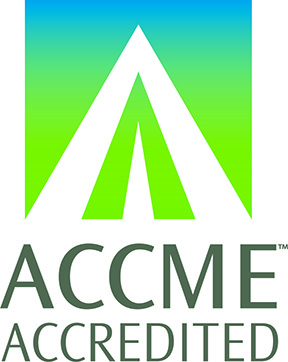 This CME-accredited program will focus on advancements in the management of severe aortic stenosis (AS). Current guidelines recommend symptom-based treatment; however, emerging data suggests earlier intervention could improve patient outcomes. Expert faculty will discuss evolving perspectives on AS therapy, including modern metrics, the risks of delayed intervention, and potential changes to guidelines.
This CME-accredited program will focus on advancements in the management of severe aortic stenosis (AS). Current guidelines recommend symptom-based treatment; however, emerging data suggests earlier intervention could improve patient outcomes. Expert faculty will discuss evolving perspectives on AS therapy, including modern metrics, the risks of delayed intervention, and potential changes to guidelines.
CME Accreditation and Designation
The Cardiovascular Research Foundation is accredited by the Accreditation Council for Continuing Medical Education to provide continuing medical education for physicians.
The Cardiovascular Research Foundation designates this activity for a maximum of 1.0 AMA PRA Category 1 Credits™ for physicians. Physicians can claim credit commensurate with the extent of their participation in the activity.
Participants will earn MOC points equivalent to the number of CME credits claimed for the activity. Successful completion of this CME activity enables the participant to earn up to 1.0 MOC points in the American Board of Internal Medicine’s (ABIM)Maintenance of Certification (MOC) program.
It is the CME activity provider’s responsibility to submit participant completion information to ACCME for the purpose of granting American Board of Internal Medicine (ABIM) MOC points.
Activity Evaluation
Evaluation by questionnaire will address content, presentation effectiveness, possible bias, and future educational needs.
Learner Objectives:
After participating in this program, learners should be able to:
• Understand the modern approach to aortic stenosis therapy and how it compares with traditional, symptom-driven treatment strategies.
• Evaluate current guidelines for severe AS management and identify key areas where changes may be warranted.
• Assess the quality metrics related to AS treatment, including the American Heart Association’s (AHA) "Target AS" initiative.
• Analyze the impact of delayed intervention on patients, including both medical and societal implications.
• Engage in discussions about the potential need for guideline revisions to reflect new evidence supporting earlier intervention in severe AS cases.
Professional Practice Gap:
A gap exists between traditional management of severe AS, which is largely symptom-based, and newer evidence suggesting better patient outcomes with earlier intervention. Many clinicians continue to follow conservative management practices, waiting for patients to present with symptoms before recommending intervention. This approach may lead to missed opportunities for improving long-term outcomes and reducing the risks associated with the natural progression of AS.
• Interventional cardiologists.
• Clinical cardiologists.
• Cardiac imaging specialists.
• Cardiac and vascular surgeons.
• Cath lab technicians and technologists.
• Fellows in interventional cardiovascular medicine and related fields.
• Heart failure specialists.
• Medical device experts.
• Nurse practitioners.
• Other physicians involved with cardiovascular care.
• Physician assistants.
• Research scientists.
• Vascular medicine specialists
Disclosure Statement
In accordance with the appropriate accrediting bodies, all planners, teachers, and authors with control over activity content are required to disclose to the provider any relevant financial relationships within the last 24 months with ineligible companies.
Accredited providers are required to provide this information to learners before the start of an activity. Discussion of off-label product usage during live cases is made at the sole discretion of the faculty. Off-label product discussion and usage are not endorsed by the Cardiovascular Research Foundation or the conference directors of this activity.
Faculty and Reviewer Disclosures
CME Reviewer(s) and Associate Course Directors(s):
Gary S. Mintz, MD - Consultant Fee/Honoraria/Speaker's Bureau - Boston Scientific Corporation; Abbott; SpectraWave
Grzegorz L. Kaluza, MD, PhD - Grant Support/Research Contract: 4C Medical; Terumo Medical Corporation; Bristol-Myers Squibb; Edwards Lifesciences; Advanced Nano Technologies; Adriakaim; Reflow Medical; Tenaya Therapeutics; Shape Memory Medical; Occlutech; Neochord; Lungpacer; InnovHeart; Deinde Medical; Ancora Heart; Cardiac Implants; Dura Biotech; Mitria; InQB8; Ethicon; R3 Vascular; Puzzle Medical; ReCardia; StrideBio; VivaSure; Magenta Medical; Canon; Thubrikar Aortic Valve; Cardiovascular Systems, Inc.; Acotec Scientific; Microbot; Philips; Zoll; Cook Medical; Medtronic; ReValve Medical; Orchestra Biomed; Microtech; Motus GI; MicroVention; Takeda Pharmaceuticals; Encompass Technologies; Retriever Medical; Siemens Healthineers; Trisol Medical; IntraTech; Abbott; Bayliss Medical; Dropshot Therapeutics; Abiomed; Autonomix; UltraVet; Meacor; JensCare; Mitre Medical; 3D Systems.
Donald E. Cutlip, MD – Consultant Fee/Honoraria/Speaker's Bureau: Boston Scientific Corporation; Grant Support/Research Contract: Cordis Corporation, a Johnson & Johnson Company.
Thaifa Smith – Nothing to disclose
Yullee Lai – Nothing to disclose.
CRF identifies relevant financial relationships and mitigates them before the activity begins. The CME associate course directors documented that all relevant financial relationships have been mitigated as of 2/6/2024.
The Cardiovascular Research Foundation ensures that its programs are educational and meet the needs of the target audience. This program was developed without the influence from commercial supporters.
This enduring webcast was supported by Edwards Lifesciences.
